A team of scientists from DTU and the Vietnam Academy of Agriculture has recently identified the root rot disease affecting Ngoc Linh ginseng, along with a biological solution to protect this rare medicinal plant.
Ngoc Linh ginseng (Panax vietnamensis Ha et Grushv.), a national treasure of Vietnam and hailed as a “miracle medicine” in traditional healthcare, is currently under serious threat due to widespread root rot that prevents the plants from growing and developing. In a concerted effort to safeguard this precious medicinal herb, scientists from DTU and the Vietnam Academy of Agriculture have successfully pinpointed the cause of the disease and proposed a biological remedy.
After more than two years of investigation, the research team made a major breakthrough by identifying two fungal species - Fusarium stercicola and Fusarium babinda - as the primary culprits of root rot in Ngoc Linh ginseng. Their findings were published in the European Journal of Plant Pathology (SCIE, Impact Factor = 1.9), marking international recognition for their significant contribution.
Investigating the cause of root rot
Ngoc Linh ginseng is a highly valuable herb known for its benefits in boosting immunity, improving memory, reducing inflammation, combating stress and cancer, and slowing aging. Due to these properties, farmers devote immense care to its cultivation. During a field survey in Hamlet 4, Tra Linh Commune, Da Nang City - a region considered a “holy land” of Ngoc Linh ginseng -Dr. Nguyen Thanh Trung from DTU’s Center for Pharmaceutical Biotechnology and lecturer at DTU discovered unusual signs among the ginseng crops, such as stem wilting, leaf yellowing, and root decay. These alarming symptoms prompted an urgent call for a reliable scientific solution to restore plant health and ensure the sustainable development of this valuable resource.
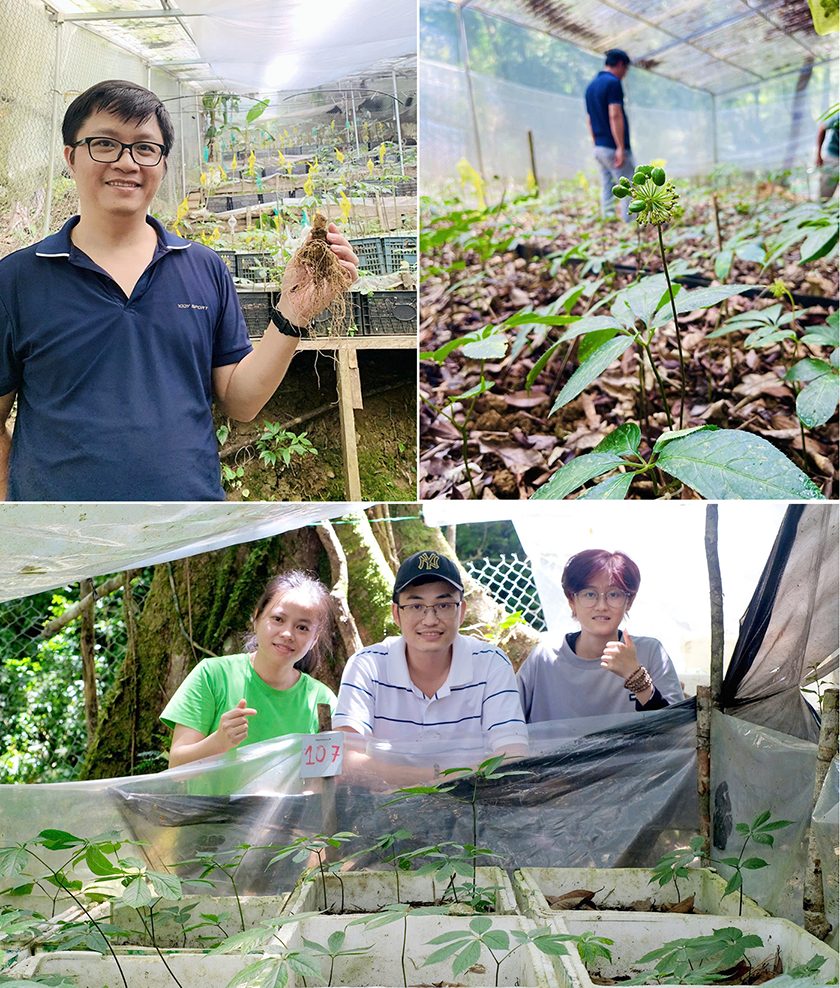
DTU scientists investigating Ngoc Linh ginseng in Hamlet 4, Tra Linh Commune, Da Nang City
Dr. Nguyen Thanh Trung collaborated with Dr. Quach Thi Thu Huong (DTU researcher and lecturer), Dr. Ho Thanh Tam (Global Health Innovation Institute researcher and head of the Biotechnology Department at DTU), and colleagues from the Faculty of Biotechnology, Vietnam Academy of Agriculture. Together, they initiated a series of experiments to isolate and identify the pathogens and to find potential antagonistic actinomycete strains. The research was supported by funding from the National Foundation for Science and Technology Development (NAFOSTED).
Dr. Trung noted, “When we saw Ngoc Linh ginseng showing symptoms of stem wilting, yellow leaves, and root rot, we recognized the severe economic risk if the disease spread to seedling and mature ginseng farms. Gathering infected samples was difficult because farmers would quickly uproot and discard affected roots once signs of infection appeared. Moreover, no official studies in Vietnam had previously identified the causal agents of root rot in Ngoc Linh ginseng. Fortunately, farmers collaborated enthusiastically with us, providing valuable infected root samples for our research.”
New discovery and biological solutions to protect the herb
Determined to find the cause of this disease, the team isolated and analyzed the pathogens using advanced methods, including morphological characterization and genetic analysis (ITS, LSU, tef1, rpb2). As a result, they identified two fungal species from the Fusarium genus:
- Fusarium stercicola (SNL 23.1), and
- Fusarium babinda (SNL 23.2)
These fungi were found to cause visible symptoms - stem wilting, leaf yellowing, and root rot - within just 7- 9 days of infection, especially in young ginseng plants aged 1–2 years.
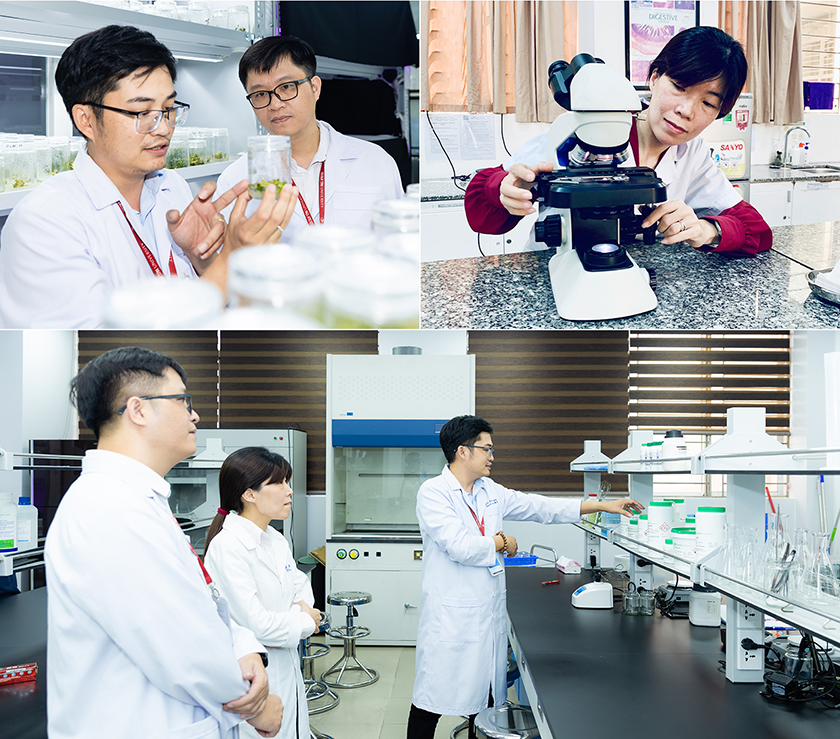
Root rot in Ngoc Linh ginseng studied at DTU’s Laboratory of Cell Technology and Center for Pharmaceutical Biotechnology
Dr. Quach Thi Thu Huong explained: “During the pathogen isolation and infection testing, we found two distinct fungal species capable of causing root rot - something never before documented. The entire experimental process, from artificial inoculation on model plants to successful infection on real Ngoc Linh ginseng, was carried out meticulously to ensure credibility. Our findings were published in the European Journal of Plant Pathology, a reputable journal in the field. We hope this research provides a solid scientific basis for disease prevention and conservation of this precious plant.”
After identifying the root cause, the team prioritized non-toxic control methods. From screening 46 strains of Streptomyces in their internal strain bank, they identified two with antifungal capabilities:
- Streptomyces owasiensis
- A new strain labeled X18
These strains not only inhibited the growth of Fusarium fungi but also promoted root development in ginseng, enhancing nutrient absorption and overall plant health.
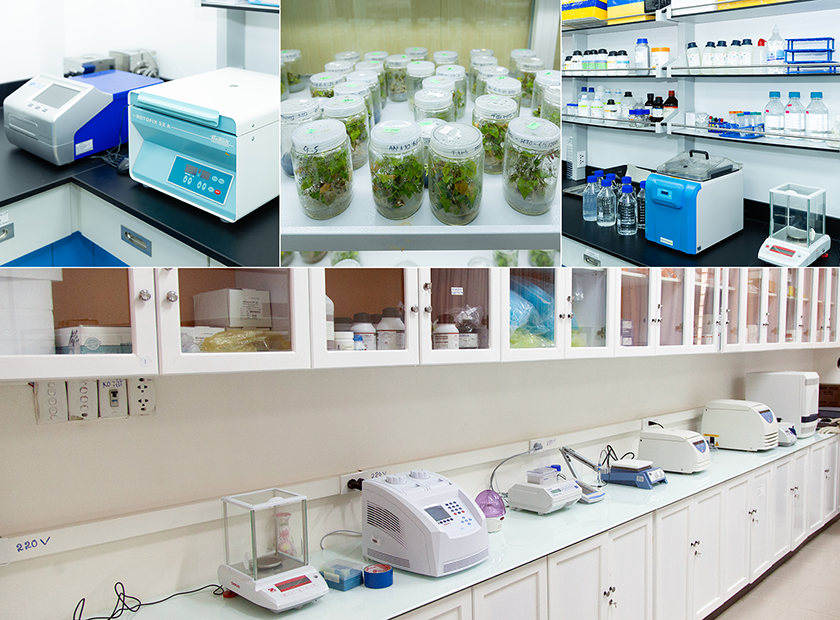
Modern laboratory equipment at DTU supporting advanced scientific research
Associate Prof. Dr. Nguyen Xuan Canh, Head of the Biotechnology Department at the Vietnam Academy of Agriculture, remarked: “Research on the pathogenic mechanisms of these fungi and the antagonistic mechanisms of actinomycetes, especially in Ngoc Linh ginseng, is critically important. In the future, we will continue collaborating with DTU’s research group to isolate and screen more actinomycete and bacterial strains from ginseng roots, aiming to develop bioproducts that prevent disease and enhance plant resilience.”
After many years of researching Ngoc Linh ginseng, Dr. Ho Thanh Tam shared: "With the favorable conditions provided by DTU through its comprehensive and modern investment in equipment at the Center for Pharmaceutical Biotechnology, the Cell Technology Laboratory, and other labs within the DTU School of Medicine and Pharmacy, we are confident to continue our research both in the cultivation areas and in the lab. Our goal is to deliver the most beneficial results for the community.
Our team’s research findings, published in a prestigious plant science journal under Springer Nature, serve as international recognition of the significant contributions coming from Vietnam. This is a tremendous source of encouragement, motivating us to pursue our ultimate goal - developing effective methods to prevent and treat diseases affecting Ngoc Linh ginseng. This will empower farmers to confidently expand their cultivation areas, thereby increasing local incomes and helping realize the Vietnamese Ginseng Development Program through 2030, with a vision to 2045, as approved by the Prime Minister in Decision No. 611/QD-TTg dated June 1, 2023."
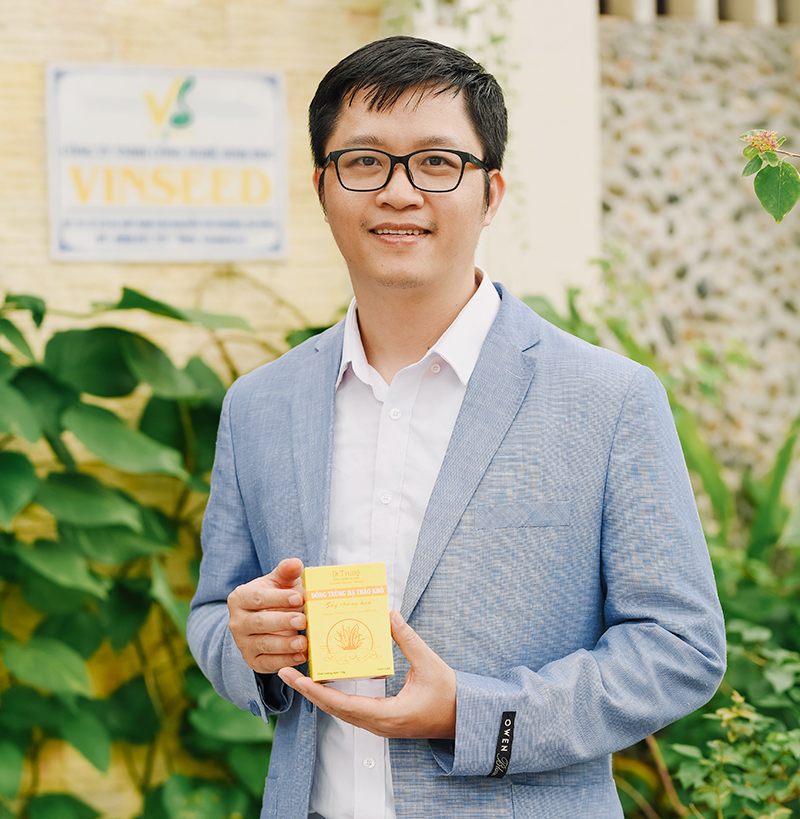
Dr. Nguyen Thanh Trung is a researcher at DTU’s Center for Pharmaceutical Biotechnology and lecturer. He specializes in microbiology and its applications in agriculture and environmental protection. He developed the “Household-scale Cordyceps Incubation Cabinet,” which won First prize in Da Nang’s 2022 Startup Innovation Competition. He has published over 30 international papers, including 10 as lead author, and owns a successful startup brand: “Dr. Trung Cordyceps.
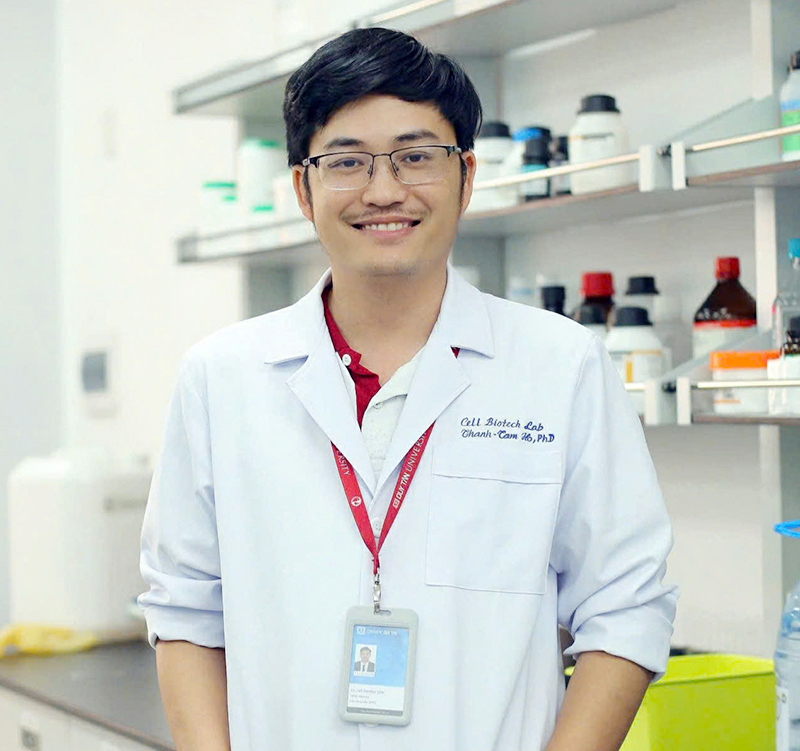
Dr. Ho Thanh Tam is a researcher at the Global Health Innovation Institute and Head of the Biotechnology Department at DTU. He focuses on biotechnology in medicinal herbs and high-tech agriculture. He was honored in 2020 as one of the Top 10 winners of the Golden Globe Award in Science and Technology. He has over 40 international publications and serves as reviewer for several Q1 and Q2 journals.
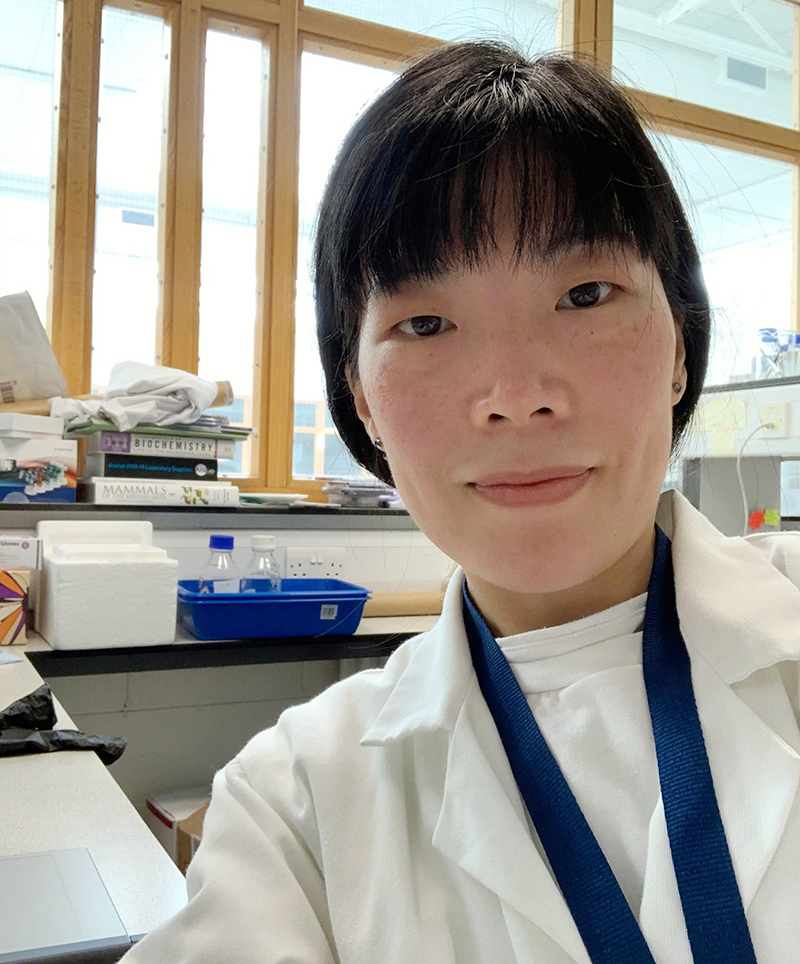
Dr. Quach Thi Thu Huong is a researcher at DTU’s Center for Pharmaceutical Biotechnology and International Medical Training Center, and lecturer. She specializes in microbiology, molecular medicine, and disease mechanisms. She focuses on personalized treatment methods for cancer and infectious diseases. Her current research includes analyzing bioactive compounds from Ngoc Linh ginseng and local herbs to assess their effects on human cells and microbiota. She has reviewed for prestigious journals such as Nucleic Acids Research and ACS Chemical Biology and authored more than five international articles, including Q1 publications.
(Media Center)